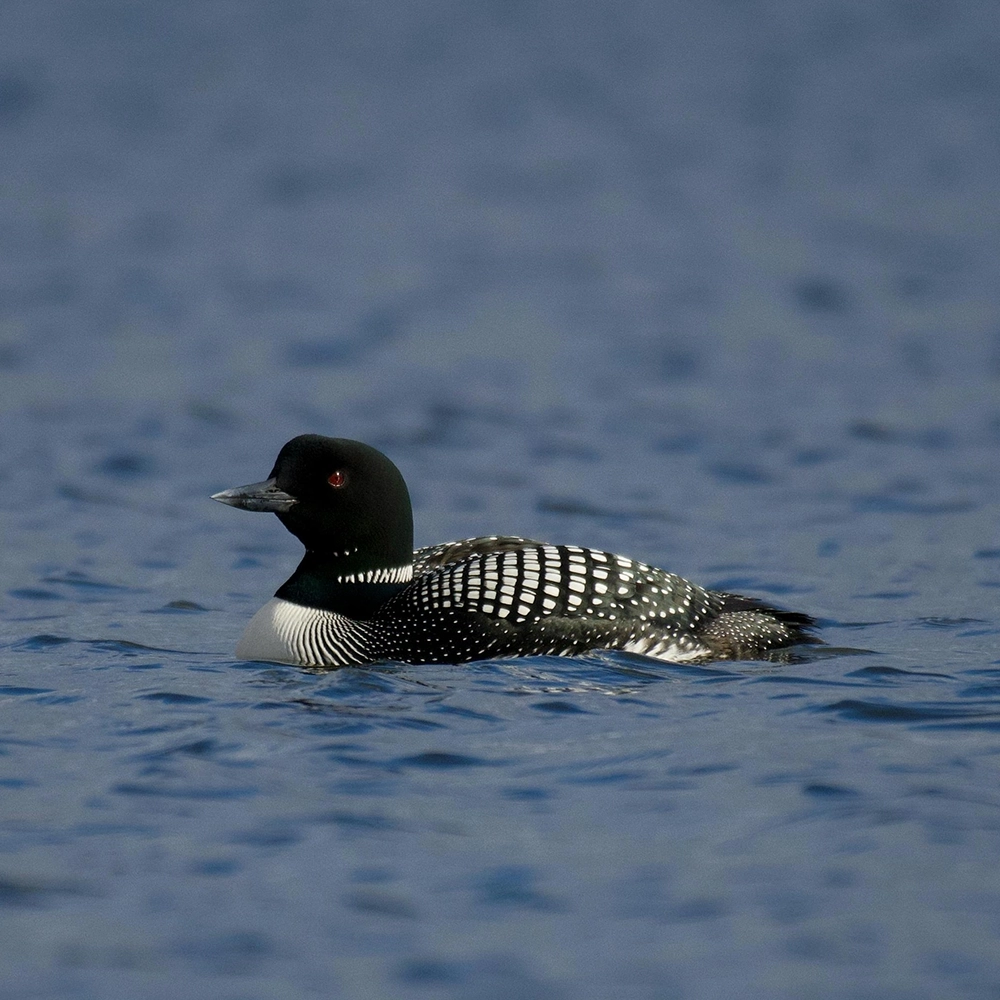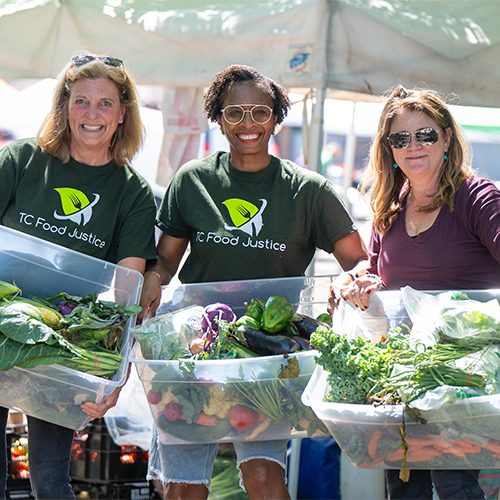$40 Million Available for Environmental Justice Grants

New program will fund community-led projects in the Great Lakes region.
Communities in a six-state region may now apply for funding to support environmental justice and public health projects through a new grant program that opens today.
A partnership between the Minneapolis Foundation, Midwest Environmental Justice Network (MWEJN), NDN Collective, and RE-AMP Network announced the launch of the Great Lakes Environmental Justice Thriving Communities grantmaking program. This three-year program will distribute $40 million in grants to support priorities identified by local communities, from clean air and water to ensuring all residents have access to healthy food.
This program marks a major public investment in local communities that are too often underserved, with a particular focus on rural, urban, and Indigenous communities. The U.S. Environmental Protection Agency (EPA) chose the Great Lakes partnership to distribute funding in the Great Lakes region, which includes Indiana, Illinois, Michigan, Minnesota, Ohio, Wisconsin, and 36 federally recognized tribal nations.
“By helping local groups get access to federal funds, we are delivering much-needed resources so that communities across the Great Lakes region—from small towns in Indiana to tribal communities in Wisconsin—can pursue the work that matters to them.” — R.T. Rybak, President and CEO of the Minneapolis Foundation
Nonprofit organizations, local municipalities, tribal governments, and institutions of higher education that work in the Great Lakes region are all welcome to apply for funding. Grants, both small and large, will be made to support resident-led solutions to environmental justice, extreme weather, and public health challenges. Grants can also support workforce development and training for developing and installing clean technologies. The partnership aims to distribute 30% of grant funding through this program to Indigenous communities, 25% to rural areas, and 45% to urban areas.
“Local leaders must be at the center of climate and environmental solutions, especially those communities that have faced public health and environmental challenges,” said Melissa Gavin, CEO of RE-AMP, which will lead program outreach to rural and remote communities in the Great Lakes region. “Rural communities are disproportionately affected by our society’s biggest challenges – and they are also uniquely well-positioned to voice their needs, identify strategies, and bring people together to address those challenges.”
“This program represents a major shift for Indigenous communities, which have spent years advocating for the resources necessary to create a sustainable future,” said Nick Tilsen, President and CEO of NDN Collective, which will lead outreach to tribes and Indigenous communities.
“Environmental justice leaders have worked tirelessly to advocate for this historic funding,” said Eartha Borer-Bell, Director of MWEJN, which will lead program outreach to urban communities. “This program aims to strengthen local communities by resourcing community-led projects that are accountable to the people they serve.”
Grants will support projects that focus on issues including, but not limited to:
- Environmental health
- Air, soil, and water quality
- Healthy homes
- Access to healthy food
- Stormwater and green infrastructure
- Emergency preparedness
- Disaster resilience
- Environmental job training
Starting today, eligible organizations may apply for three types of grants:
- Tier 1: One-year grants of up to $150,000 for assessment and engagement. This phase of the grant program will also include invitation-only, noncompetitive grants of up to $75,000 for severely capacity-constrained communities, municipalities, and community-based organizations.
- Tier 2: One- to two-year grants of up to $250,000 for community education and planning.
- Tier 3: One- to two-year grants of up to $350,000 for project development and implementation.
The Great Lakes partnership is one of 11 regional grantmakers that the EPA selected across the country to issue subgrants through its national Environmental Justice Thriving Communities program, with each grantmaker designing and implementing a program best suited to communities in their region.
The Great Lakes program is designed to center the communities most impacted by environmental challenges. Program outreach and grantmaking decisions will be informed by a 10-member Regional Community Advisory Committee that reflects the region’s diversity and brings expertise on a wide range of environmental and public health issues. Grant applicants will have access to wraparound technical assistance to help them navigate the federal grantmaking process.
Applications will be accepted from today through November 2026, and grants will be approved on a rolling basis. To learn more about the program guidelines and apply for a grant, go to greatlakestcgm.org.
More about the partners:
The Midwest Environmental Justice Network (MWEJN) works to connect and strengthen frontline and grassroots organizations to achieve environmental justice in the Midwest. Led by and accountable to environmental justice organizations, the Network seeks to increase the capacity and impact of environmental justice leaders and organizations based in the tribal nations and following Midwestern states: Illinois, Indiana, Iowa, Kansas, Michigan, Minnesota, Missouri, Nebraska, North Dakota, Ohio, South Dakota, and Wisconsin. mwejn.org
The Minneapolis Foundation drives collective action to realize strong, vibrant communities. It cultivates generosity by taking action on the greatest civic, social, and economic needs—partnering with nonprofits, facilitating grantmaking, driving research and advocacy, and providing services to donors seeking to make a difference in their communities. minneapolisfoundation.org
NDN Collective is a national Indigenous-led organization that creates sustainable solutions on Indigenous terms. The organization brings critical and deep experience in building the collective power of Indigenous Peoples, communities, and Nations to exercise their inherent right to self-determination, while fostering a world that is built on a foundation of justice and equity for all people and Mother Earth. ndncollective.org
The RE-AMP Network seeks to equitably eliminate greenhouse gas emissions in the Midwest by 2050. The Network works with organizations across ten states: Illinois, Indiana, Iowa, Kansas, Michigan, Minnesota, North Dakota, Ohio, South Dakota, and Wisconsin. As a network, RE-AMP combines the strategy of taking a systems approach with the power of working and acting in collaboration with organizations who know their communities best. The RE-AMP Network has done extensive work building capacity and funding efforts in rural Midwestern communities on clean energy, air and water quality, and energy efficiency. RE-AMP believes strategy and solutions should be set for the Midwest by Midwesterners, and as a Midwest climate network, it is rooted in, and reflects, the Midwest. reamp.org
Press Contact: Sarah Lemagie, slemagie@mplsfoundation.org, 612-672-3877

